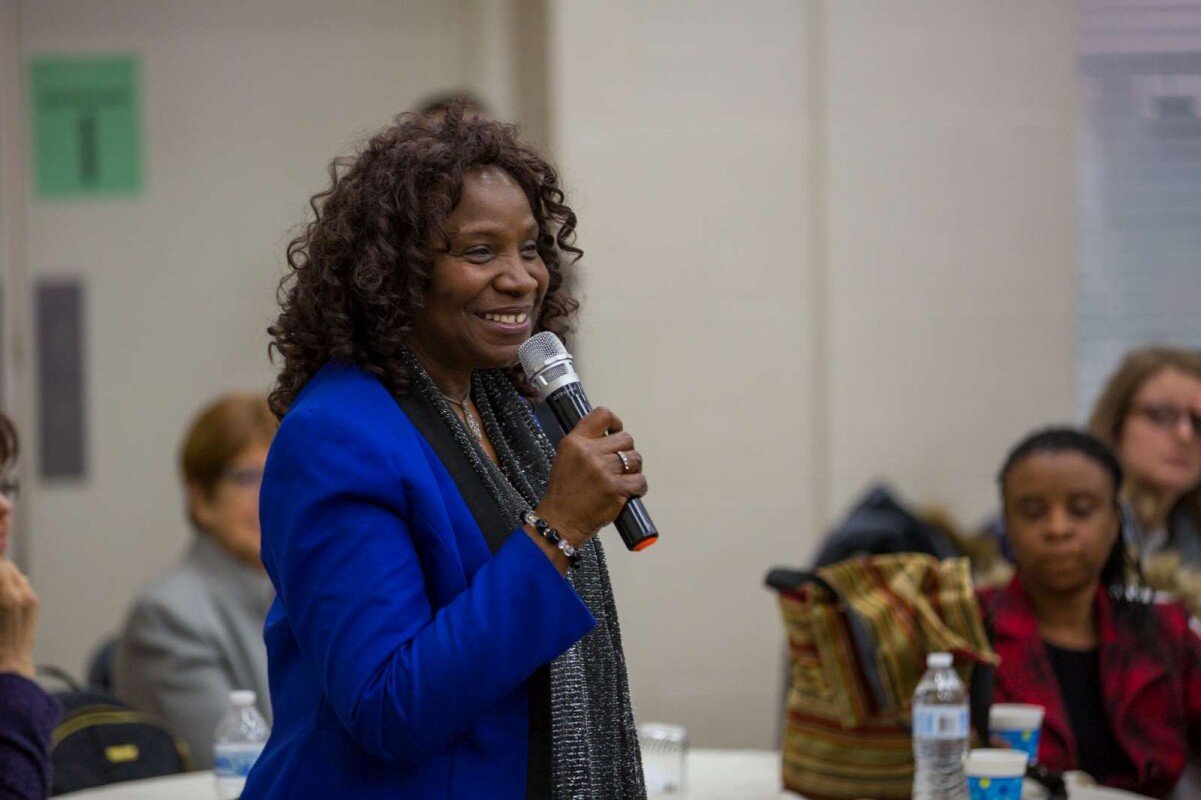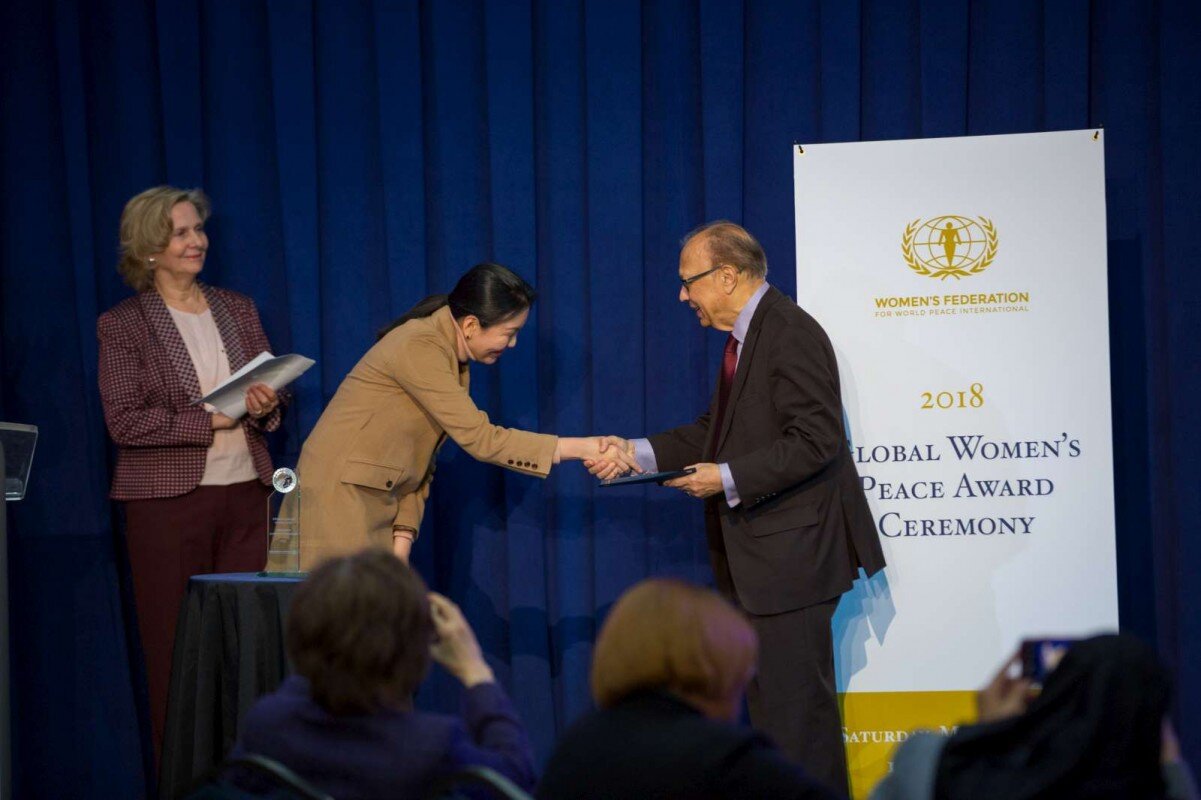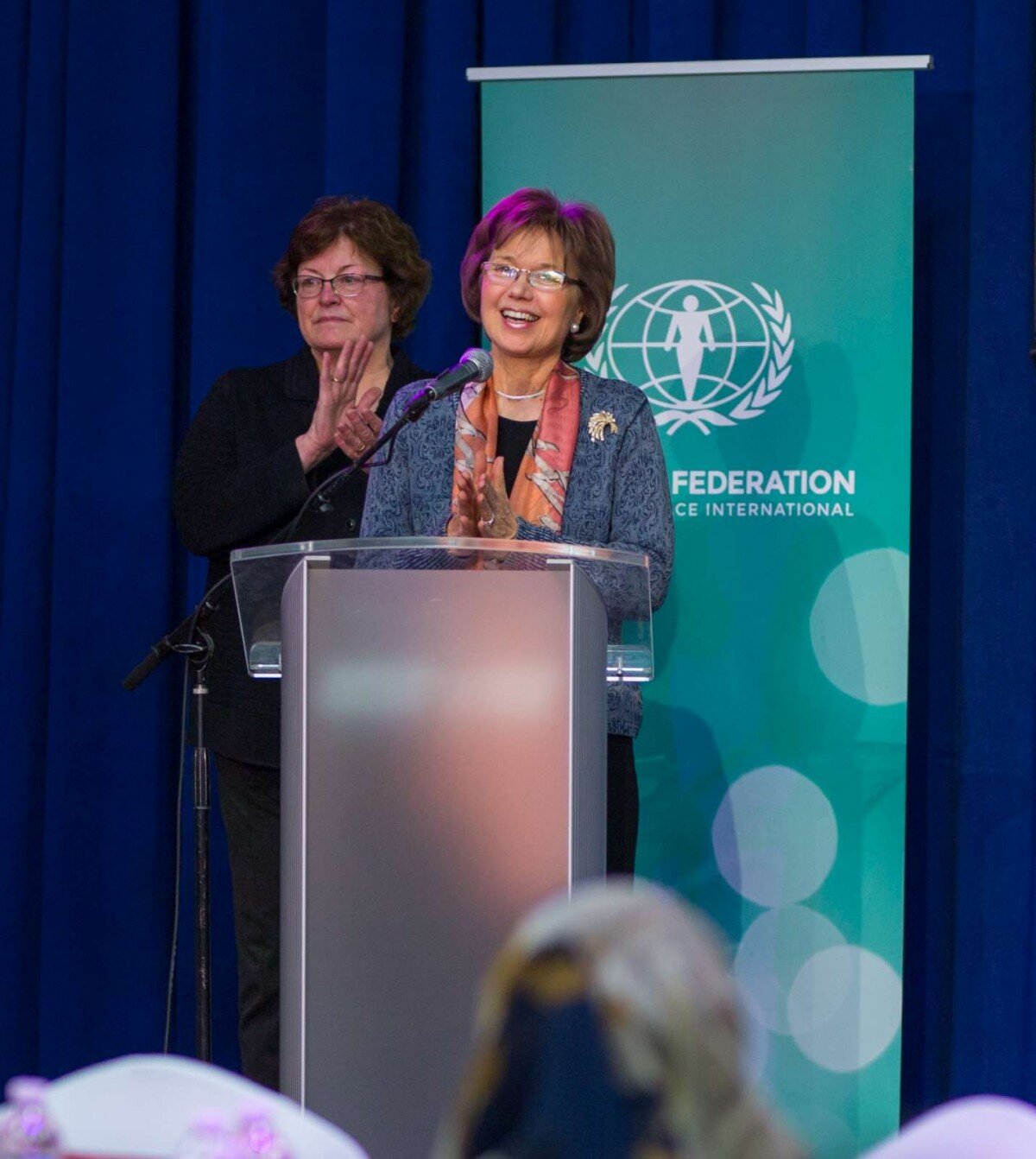A MORE PEACEFUL LOOK AT PEACE: REFLECTIONS AND FIRST EXPERIENCE WITH WFWP AT HORIZON SUMMIT
Iwas thrilled to learn that I would be attending the Horizon Summit as part of my first task as a WFWP USA intern. Vice President Ms. Katarina Connery suggested that being present for this summit would provide me with a wonderful introduction into the work of WFWP and act as an orientation of sorts – and it certainly did!
I was particularly intrigued by this year’s theme, “Rising Side by Side” that brought together international (it was amazing to learn that the attendees came from 28 countries!) and intergenerational women and men to a dedicated discussion on fostering peace leadership among girls and young women around the world. I truly felt that Professor Yeon Ah Moon, President of WFWPI, and Ms. Angelika Selle, President of WFWP USA, kick-started the summit in the right direction with their opening remarks by injecting the room with an environment of peace, positivity, mutual respect, sense of purpose, and solidarity.
Having previously worked as an intern at the United Nations headquarters in New York in the Office of the Special Coordinator on Improving UN Response to Sexual Exploitation and Abuse, I would often find myself disheartened by the lack of initiatives that empowered and encouraged girls and young women to take up leadership roles in their homes and community. Professor Yeon Ah Moon and Ms. Angelika Selle referred to women as “agents of change” with their “unique value and potential” to create an environment of well-being and peace for future generations that is inclusive. This instilled in me the confidence that working for WFWP USA as an intern is going to provide me with the unparalleled opportunity to find my voice and articulate my opinions and experiences as a young woman peace leader in the same way it has helped, inspired, and provided guidance to many women since its inception.
Ambassador Chowdhury receiving the Global Women's Peace Award
Ambassador Anwarul K. Chowdhury’s acceptance speech on receiving the Global Women’s Peace Award was particularly inspiring and watching him refer to himself as a “proud feminist” was truly invigorating; for me, it brought to the forefront the larger debate on whether the feminist movement should welcome the inclusion of men or reject it. While the central goal of feminism is to ensure that women are treated as equals in society, feminism also includes dismantling the negative gender stereotypes and norms that limit women as well as men. In order to achieve this, it is important to implant those ideals in young boys in their homes and schools; after all, as Ambassador Chowdhury stated, “peace is inextricably linked to equality between men and women.” In fact, a study from the Journal of Economics and Management Strategy found that the advancement in gender equality can improve life for ALL people! The global peace movement advocated by WFWP calls for women and men to be united as a greater whole as opposed to confronting and competing with each other. I was particularly enthralled to see a glimpse of this at the Horizon Summit, especially since this was certainly a shift from the political and combative women’s rights movements that I have come to know over the years.
I listened attentively as Ms. Prativa Khanal was acquainting all the attendees at the summit with the Girls Ambassadors for Peace Program that is currently being implemented in South Sudan and the Democratic Republic of Congo. It trains young literate women and girls how to conduct literacy training and leadership. They then travel to rural communities and teach illiterate girls and women how to read and write in addition to raising awareness about the importance of women’s rights and participation in decision making and peacebuilding.
Ms. Prativa Khanal’s message reminded me of my studies in college. During the initial stages of research for my college dissertation, “Rape as Torture: Assess the effectiveness of the feminist strategy of recognizing all rapes as torture on reducing the prevalence of the crime and provision of justice,” I decided to focus a section of my paper on the plight of Dalit women, the lowest in the Hindu caste system in India formerly known as ‘untouchables’ – a hard truth about my country that I always find difficult to swallow. The case studies that I worked on emphasized the increased need to reach out to women such as those at the grassroots level that are completely marginalized and disregarded and help them facilitate processes by which they can articulate their diverse agendas and issues. This was echoed by Ms. Prativa Khanal when she highlighted the necessity of more grassroots initiatives such as the ‘Girls Ambassadors for Peace Program’ that are crucial in enhancing the capacities of women and girls. After all, how is it possible to obtain human rights protection and recognize or confront the many differences that characterize the difficulties of various groups of women and girls – such as the Dalits in India – at the grassroots level without actually engaging them in a way that helps us understand the textured realities of their daily lives?
Overall, my first step into WFWP through this Horizon Summit was absolutely exhilarating, and I am excited to be a part of an organization that works towards raising young women leaders as the key to lasting peace and stability.





